#Procrastination #socialbattery 🔋 Empty 🥹
So #Yesterday my #social #battery was #okay , but #today it's #empty 🥴 #Feeling like #everything can #Work #Relationships daily #tasks can & will have to #wait 🫷🏾#Autism #PTSDSupportAndRecovery

So #Yesterday my #social #battery was #okay , but #today it's #empty 🥴 #Feeling like #everything can #Work #Relationships daily #tasks can & will have to #wait 🫷🏾#Autism #PTSDSupportAndRecovery
“CAN’T” never did anything!
Rather you think you can or think you can’t, either way, you’re right! The subconscious mind will do exactly that which you believe, rather it’s true or not. Unless it is literally physically impossible for some reason, saying that you can’t is nothing more than negative self talk, a limiting belief. We must start to talk more positively about ourselves and our capabilities, to trust ourselves more, and to believe in the possibilities that are before us!
#Procrastination #Motivation #Depression
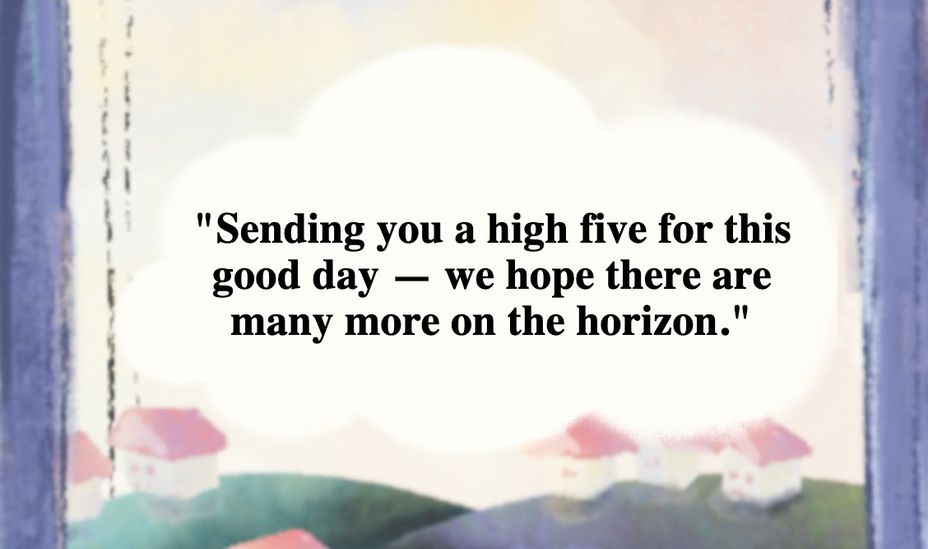
Well, a good day. Went to the regular doc and got refills I've been out of for several weeks---- procrastination sux. Had an eye exam and ordered new glasses and gonna retry contacts after many, many years. just a little boost for today. Hope this week for all of us is good, too!
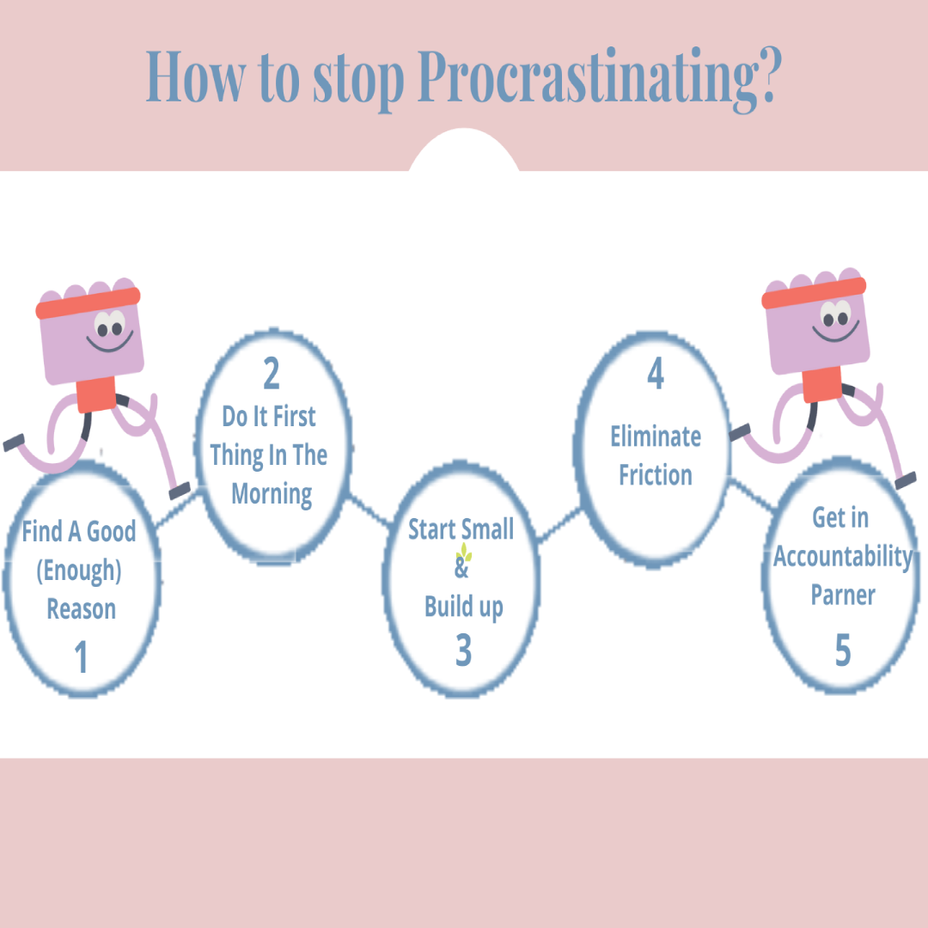
#MentalHealth #Procrastination
GET ORGANIZED
You are more likely to procrastinate if you don’t have a set plan or idea for completing your work. Investing in a planner is a good idea. Start keeping track of all your assignments and their due dates. When you're organized, it gives you a more orderly and measured framework within which to work.
ELIMINATE DISTRACTIONS
Getting rid of distractions is another tip to avoid procrastination. By limiting the number of distractions around you, you're more likely to get done what you need to do. Shut your phone off, retreat to a quiet place and listen to classical music or white noise to drown out any noise.
PRIORITIZE
Prioritizing your work and assignments is another way to help you avoid procrastination. Every week or so, make a list of what needs to be completed. Make sure you address the most critical or time-sensitive assignments first. Then work your way down the list. Get the hard stuff out of the way first, so that everything that comes after it will seem more manageable.
SET GOALS
Part of the reason you might procrastinate is because what you have to do seems overwhelming. It’s a lot easier to get started on a project when you establish simple, reachable goals rather than face a big, vague plan. Instead of telling yourself, “I’ll study chemistry tonight,” you might instead say, "I’ll study chapter six tonight." This makes your goals less intimidating and more attainable.
SET DEADLINES
Another tip to avoid procrastination is to set deadlines. Many students get stuck in the “I'll do it tomorrow or eventually” cycle when in truth that day or eventually never comes. It's important to set a specific date for when you want a project or assignment to be completed. Aim to have your projects and assignments completed one or two days in advance. That way, if something unexpected happens, you still have extra time to complete them.
TAKE A BREAK
Another tip to avoid procrastination is to take a break from your school work every now and then. Take a 10-15 minute break. Listen to music, take a walk or scream into a pillow — anything that takes your mind off of your school work and allows you to relax. An Oregon State University study shows that taking a break can increase focus, reduce stress, and help you better retain information.
REWARD YOURSELF
Rewarding yourself may create an incentive to complete a task and help avoid procrastination. After studying for a test or completing an assignment, consider giving yourself a reward. It could be as simple as, "Once I finish this assignment, I can watch an episode of my favorite show."
HOLD YOURSELF ACCOUNTABLE
Holding yourself accountable for completing your assignments on time, studying for tests and getting good grades is another tip to avoid procrastination.
You can refer to this:
I do not want a Mighty Account Anymore. Please Delete this account for me. Where is the option to delete? I have not been answered. This is triggering my abuse today…
#MightyLeaders #DELETE #CPTSD #PTSD #Addiction #Procrastination #RedFlags

In the fast-paced world we live in, it's no surprise that many individuals find themselves caught up in the whirlwind of daily responsibilities, leaving little time for self-care and relaxation.
One phenomenon that has gained significant attention recently is revenge bedtime procrastination. This peculiar behavior occurs when individuals deliberately delay their bedtime to reclaim a sense of control over their personal time, often at the expense of much-needed rest. In this article, we delve into the intricacies of revenge bedtime procrastination, its potential impact on well-being, and strategies to overcome this detrimental habit.
Understanding Revenge Bedtime Procrastination
Revenge bedtime #Procrastination is a term coined to describe the act of intentionally staying up late despite feeling tired. It's a response to the desire to regain a sense of freedom and autonomy over one's own time after a day consumed by obligations and responsibilities. While it may seem counterintuitive to sacrifice sleep, revenge bedtime procrastination provides individuals with a fleeting opportunity to engage in activities they enjoy without external demands.
The Negative Consequences
Although revenge bedtime procrastination offers a short-lived sense of freedom, it can have severe repercussions on both physical and mental well-being. Lack of sleep, as a result of staying up late, can lead to a myriad of health issues, including fatigue, reduced cognitive function, impaired concentration, weakened immune system, and increased risk of chronic conditions such as heart disease and diabetes. Additionally, the constant cycle of sleep deprivation can contribute to heightened stress levels, anxiety, and even depression.
Breaking Free from Revenge Bedtime Procrastination
Recognizing the detrimental effects of revenge bedtime procrastination is the first step toward reclaiming control over your sleep routine. Here are some effective strategies to help you break free from this habit:
Prioritize Self-Care: Understand that self-care is not a luxury but a necessity for your overall well-being. Make a conscious effort to allocate time for activities that rejuvenate your mind and body. Establish a Bedtime Routine: Set a consistent bedtime and create a relaxing routine leading up to it. This can include activities such as reading, taking a warm bath, practicing mindfulness, or listening to calming music. By following a routine, your body will learn to associate these activities with sleep, making it easier to unwind and fall asleep faster. Create a Digital Detox: The blue light emitted by electronic devices interferes with our body's natural sleep-wake cycle. Limit your exposure to screens, especially in the hours leading up to bedtime. Instead, engage in calming activities that promote relaxation and prepare your mind for sleep. Manage Your Time Wisely: One of the underlying causes of revenge bedtime procrastination is poor time management. Prioritize your tasks, set realistic goals, and establish boundaries to ensure you have ample time for both responsibilities and leisure activities. This will help you regain a sense of control over your daily routine. Seek Support: Breaking habits can be challenging, but it's easier when you have a support system. Reach out to friends, family, or even consider joining a support group where you can share experiences and strategies for overcoming revenge bedtime procrastination. Learn more about revenge sleep procrastination: productive.fish/blog/revenge-bedtime-procrastination

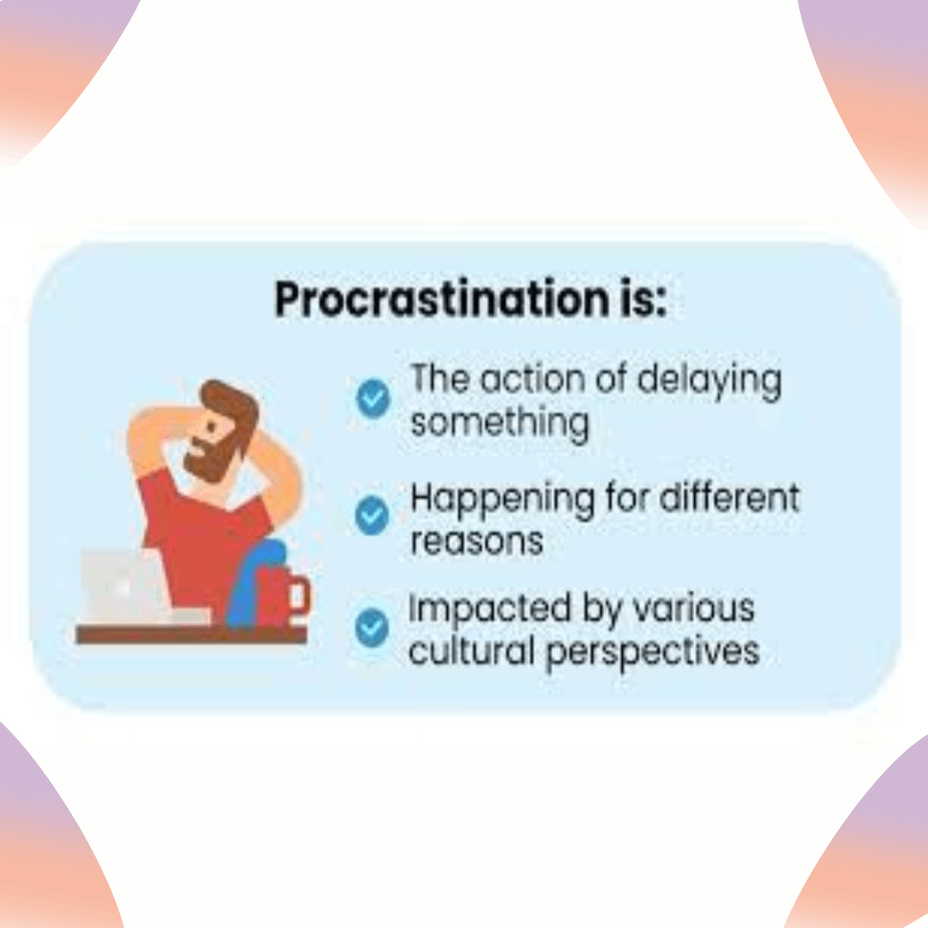
#MentalHealth #Procrastination
Procrastination is the action of unnecessarily and voluntarily delaying or postponing something despite knowing that there will be negative consequences for doing so. The word has originated from the Latin word procrastinatus, which itself evolved from the prefix pro-, meaning "forward," and crastinus, meaning "of tomorrow." Oftentimes, it is a habitual human behavior.
It is a common human experience involving delay in everyday chores or even putting off salient tasks such as attending an appointment, submitting a job report or academic assignment, or broaching a stressful issue with a partner. Although typically perceived as a negative trait due to its hindering effect on one's productivity often associated with depression, low self-esteem, guilt and inadequacy, it can also be considered a wise response to certain demands that could present risky or negative outcomes or require waiting for new information to arrive.
From a cultural and a social perspective, students from both Western and non-Western cultures are found to exhibit academic procrastination, but for different reasons. Students from Western cultures tend to procrastinate in order to avoid doing worse than they have done before or from failing to learn as much as they should have, whereas students from non-Western cultures tend to procrastinate in order to avoid looking incompetent, or to avoid demonstrating a lack of ability in front of their peers.
It is also important to consider how different cultural perspectives of time management can impact procrastination. For example, in cultures that have a multi-active view of time, people tend to place a higher value on making sure a job is done accurately before finishing. In cultures with a linear view of time, people tend to designate a certain amount of time on a task and stop once the allotted time has expired.
You can refer to this:
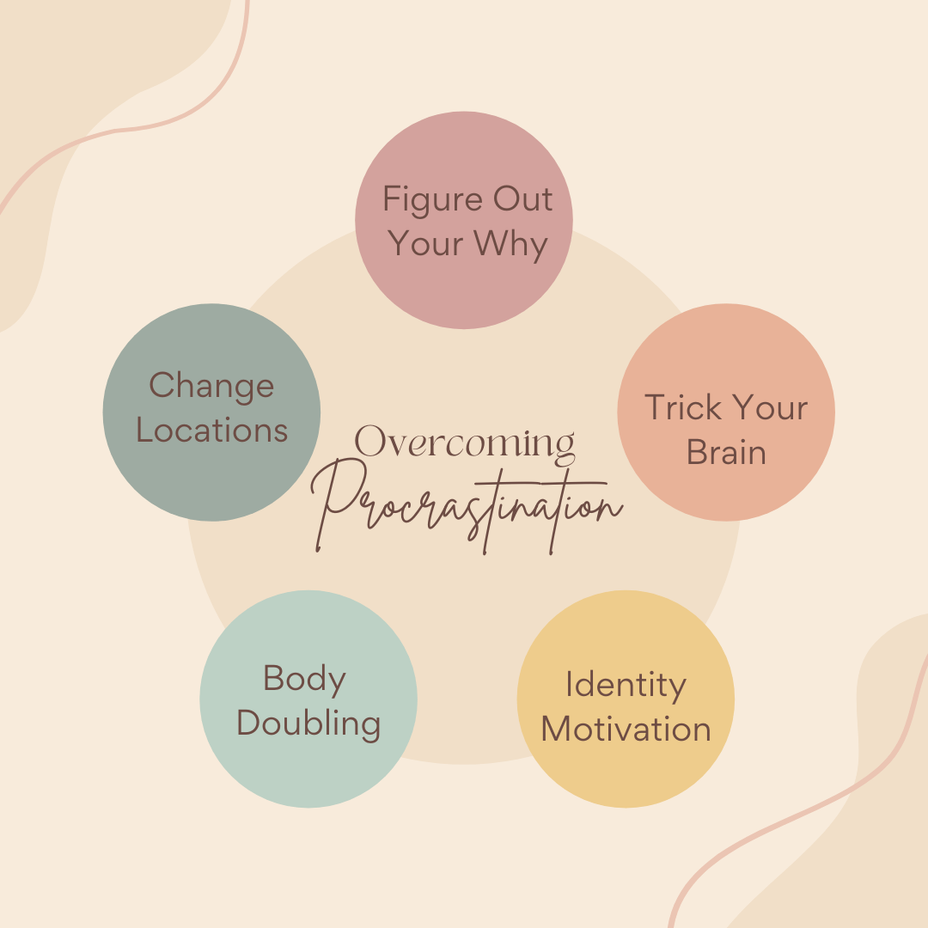
#MentalHealth #Procrastination
Figure Out Why You Procrastinate – There are many reasons people procrastinate. Figuring out your reason(s) is the first step to overcoming them. Is it self-doubt or do you just need more information? Do you need more time for the information to percolate in your head, or do you simply need the stress of the deadline to activate? Are you unclear if the task is important? Or do you just hate doing it? Understanding the cause of our individual brands of perfectionism helps us move into action.
Trick Your Brain – Start with an easy task to stimulate your brain. Take advantage of the “pleasure seeking” chemicals and as soon as you finish the easy/fun task move to one of the “harder to complete” tasks.
Identity Motivation –Use a character trait you like about yourself to help you activate. i.e. – I am a learner, I have perseverance, I am a problem-solver. Then ask:
-What kind of situation is this?
-Who am I?
-What does someone like me do in a situation like this? If you consider yourself to be thoughtful – then you’ll ask yourself – what does a thoughtful person do in a situation like this? If you consider yourself to be a problem solver then you’ll ask yourself – what would a problem solver do in a situation like this?
Body Doubling – Body Doubling is having a partner share your space to help keep you on task. They don’t need to do anything in particular. Their very presence helps move you to action.
-Meet a friend at the coffee shop and work on your “hard” project alone – together.
-Meet a colleague in the conference room and set your Pomodoro timer.
-Ask a family member to sit with you while you are getting started.
-Hire a NAPO Professional Organizer or other consultant to work on your project with you
Change Location – A unfamiliar space can provide just enough stimulation your brain needs to move into action. Weather permitting try working outside, a new coffee shop, or even a new location at work or home. Simply changing chairs at your kitchen table may be enough to shift how your brain is processing the environment.
You can refer to this:

#MentalHealth #Procrastination
A procrastinator is someone who repeatedly and unnecessarily postpones decisions or actions. For example, if a person repeatedly delays working on assignments until right before their deadline for no reason, even though they know that it would be better for them to start earlier, that person is a procrastinator.
Procrastinators generally suffer from various issues due to their procrastination, like missed opportunities and increased stress. They also usually suffer from intention-action gaps, since they’re unable to bring themselves to do things on time despite intending and wanting to do so, and despite being well aware of the issues that their procrastination causes. Accordingly, many procrastinators are stuck in chronic cycles of procrastination, which they keep trying to escape.
However, there are also differences between procrastinators, in terms of why they procrastinate, how they do so, and how this behavior affects them. For example, some procrastinators might delay to avoid thinking about a task that makes them feel anxious, while others delay because they get distracted by social media.
You can refer to this:
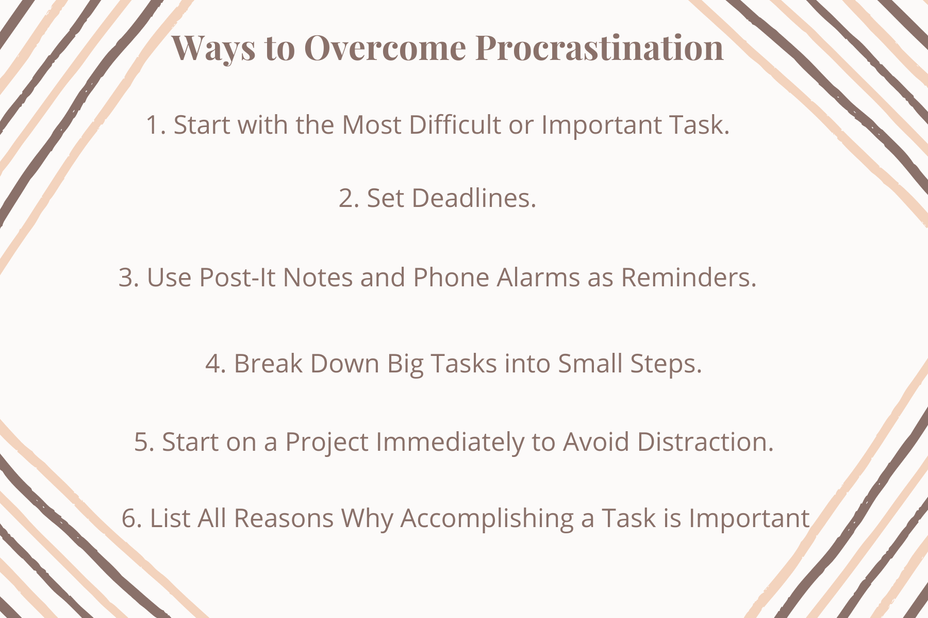
#MentalHealth #Procrastination
It's important to complete tasks on time and meet deadlines to be productive and efficient at work, but some people find this difficult and can start to procrastinate. Procrastination can impact your ability to work successfully, which can have an impact on your career. Knowing some strategies to overcome procrastination can be helpful. In this article, we explain what procrastination is and discuss some strategies to avoid procrastinating.
Procrastination involves delaying or postponing the completion of important tasks. Rather than being related solely to time management, procrastination may have complex feelings at its root. People who procrastinate might be anxious about their performance or abilities, which causes them to delay completing tasks.
Some people who procrastinate might feel stressed or overwhelmed by their workload. You might also procrastinate because you're distracted or worried about other issues, for example, issues in your personal life. Some people can be procrastinators because they're perfectionists and feel under pressure to get everything right.
Procrastination can happen both at work and home and often causes more negative feelings in the long run. People who procrastinate might face more intense pressure because they then have to complete work at the last minute. Procrastination is a learned behavior that can also affect the way you feel about yourself.
Ways to Overcome Procrastination
1. Start with the Most Difficult or Important Task.
2. Set Deadlines.
3. Use Post-It Notes and Phone Alarms as Reminders.
4. Break Down Big Tasks into Small Steps.
5. Start on a Project Immediately to Avoid Distraction.
6. List All Reasons Why Accomplishing a Task is Important
Ways to Overcome Procrastination
7. Visualize Final Outcome.
8. Release Expectations of Doing It Perfectly.
9. Find Ways to Deal with Stress and Overwhelm.
10. Choose a Reward for Completing a Task.
11. Find an Accountability Partner.
12. Celebrate Your Successes.
You can refer to this: